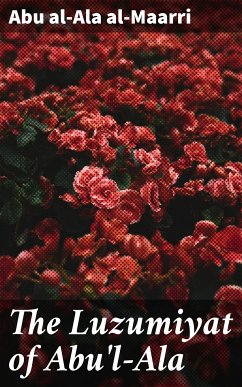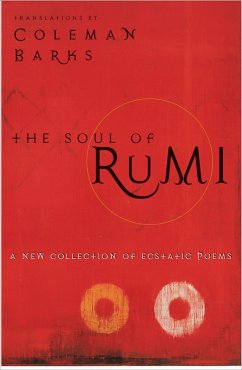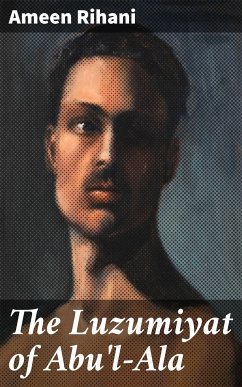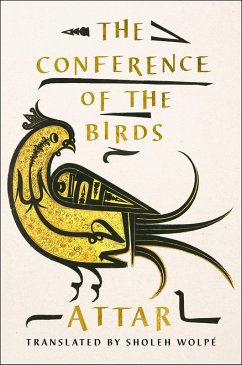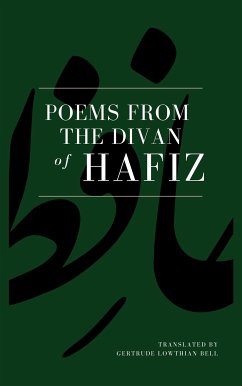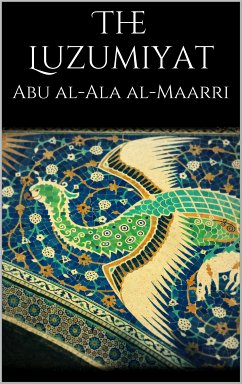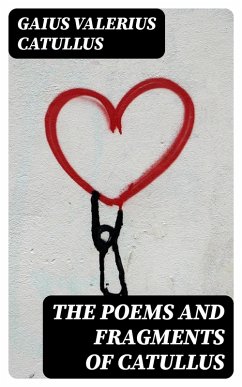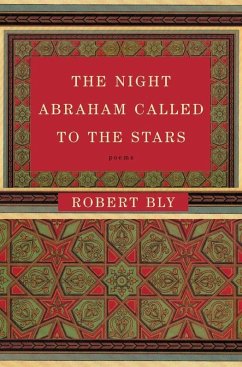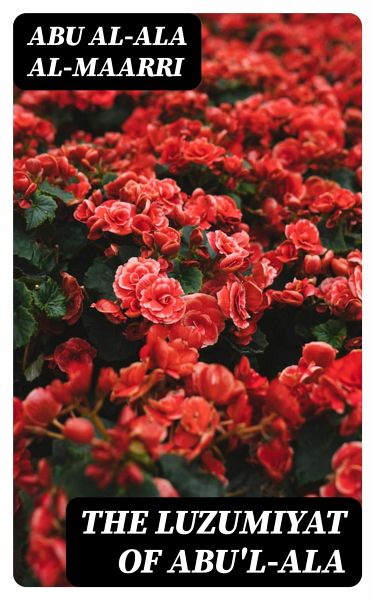
The Luzumiyat of Abu'l-Ala (eBook, ePUB)
Selected from his Luzum ma la Yalzam and Suct us-Zand
Übersetzer: Rihani, Ameen Fares
Versandkostenfrei!
Sofort per Download lieferbar
1,99 €
inkl. MwSt.
Weitere Ausgaben:

PAYBACK Punkte
0 °P sammeln!
In "The Luzumiyat of Abu'l-Ala," Abu al-Ala al-Maarri presents a captivating exploration of philosophical and metaphysical themes through a unique blend of poetry that defies traditional Arabic metrics. Composed in a highly innovative style, the Luzumiyat defies the rigid rules of rhyme and meter, epitomizing al-Maarri's unconventional approach that seeks to illuminate his skepticism regarding religion, fate, and the nature of existence. This work, rich in allegorical language and intricate metaphors, situates itself within the broader context of medieval Arabic literature, reflecting the tens...
In "The Luzumiyat of Abu'l-Ala," Abu al-Ala al-Maarri presents a captivating exploration of philosophical and metaphysical themes through a unique blend of poetry that defies traditional Arabic metrics. Composed in a highly innovative style, the Luzumiyat defies the rigid rules of rhyme and meter, epitomizing al-Maarri's unconventional approach that seeks to illuminate his skepticism regarding religion, fate, and the nature of existence. This work, rich in allegorical language and intricate metaphors, situates itself within the broader context of medieval Arabic literature, reflecting the tensions of the epoch between mysticism and rational thought. Al-Maarri's piercing critiques reveal a definitive stance against dogma, which resonates with the intellectual currents of the Islamic Golden Age and anticipates modern existentialism. Abu al-Ala al-Maarri, a blind poet and philosopher from Al-Haram, is often celebrated for his exceptional intellect and unique insights into human existence. His life was marked by personal challenges and a relentless pursuit of knowledge, which profoundly influenced his writings. Living in a tumultuous period marked by political intrigue and cultural flourishing, al-Maarri navigated the complexities of faith and reason, ultimately leading him to question established norms and conventions that he encountered in society, evident in the progressive ideas inherent in the Luzumiyat. For readers seeking a thought-provoking literary experience that challenges normative beliefs while celebrating linguistic artistry, "The Luzumiyat of Abu'l-Ala" is an essential read. Al-Maarri's groundbreaking work invites contemplation and self-examination, making it not only a poetic masterpiece but also a timeless philosophical dialogue that transcends cultural and historical boundaries.
Dieser Download kann aus rechtlichen Gründen nur mit Rechnungsadresse in A, B, BG, CY, CZ, D, DK, EW, FIN, F, GR, H, IRL, I, LT, L, LR, M, NL, PL, P, R, S, SLO, SK ausgeliefert werden.




